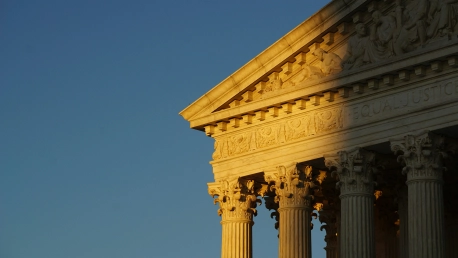The recent injunction by the U.S. Supreme Court against the U.S. Department of Education is a crucial development in the ongoing legal battles surrounding Title IX regulations. This court order prevents the implementation, enactment, or enforcement of the new guidelines introduced by the Biden administration, which aimed to expand the definition of sex discrimination to include gender identity and sexual orientation. The expanded definition has sparked lawsuits from six states, including Ohio, which argue that the broadened interpretation distorts the original intent of Title IX. Originally implemented to protect women in educational settings from discrimination, Title IX’s revised interpretation has ignited a contentious debate.
Legal Background and the Bostock v. Clayton County Case
Broader Definition of Sex Discrimination
In a landmark 2020 Supreme Court case, Bostock v. Clayton County, the Court ruled that sex discrimination under Title VII of the Civil Rights Act of 1964 encompasses gender identity and sexual orientation. This decision provided a legal precedent that encouraged the Biden administration to apply a broader definition of sex discrimination to Title IX regulations covering educational institutions receiving federal funding. Since its inception, Title IX has aimed to eliminate sex-based discrimination in education. However, the expanded interpretation prompted by the Bostock ruling has led to a wave of legal challenges from Republican-led states.In the lawsuits filed by six states, including Ohio, the argument posited is that the expanded Title IX regulations undermine the original goal of protecting women from discrimination in educational settings. These state attorney generals argue that Title IX’s broader definition of sex discrimination conflicts with the original intent to safeguard women, positing that it may inadvertently allow for discrimination under the guise of inclusivity. The lawsuits reflect the heightened political and legal contention surrounding transgender rights and educational policies, emphasizing the ongoing struggle to balance anti-discrimination protections with traditional interpretations of sex.
Republican State Attorneys’ Argument
Republican state attorney generals have played a pivotal role in challenging the Biden administration’s expanded Title IX regulations. They argue that the broadened definitions run counter to the foundational goal of Title IX, which was to protect women specifically from sex-based discrimination. By including gender identity and sexual orientation within the scope of sex discrimination, these states contend that the updated regulations not only deviate from Title IX’s original intent but also potentially create scenarios where women’s protections could be compromised. This standpoint has garnered significant attention and reflects the deep political divide over transgender rights and anti-discrimination measures.Spectrum News 1 Legal Analyst Rory Riley-Topping has highlighted the political undertones driving these disputes. Notably, all of the states that have filed lawsuits are represented by Republican attorney generals, emphasizing the partisan nature of the issue. The deep political divide surrounding transgender rights has resulted in varied interpretations and applications of these issues by different courts across the country. The Supreme Court’s injunction temporarily halts the immediate implementation of the new Title IX regulations, providing time for these legal challenges to progress and ultimately determine the future applicability and enforcement of the expanded definitions.
Potential Implications and Future Rulings
Transgender Rights and Legal Definitions
The broader trend in the legal landscape indicates a significant political and legal contention over how sex discrimination is defined and the rights of transgender individuals. With 26 states taking legal action against the new Title IX regulations, it is evident that there is a substantial national conversation about transgender rights and the legal definitions of sex discrimination. Legal analysts such as Rory Riley-Topping suggest that the Supreme Court’s eventual ruling may provide much-needed clarity on whether the expanded definition from Bostock v. Clayton County is applicable to Title IX regulations. This decision could have lasting impacts on educational policy and civil rights in the United States.The ongoing legal battle is poised to impact the 2024 elections significantly. The high stakes involved in these cases underscore the legal and political complexities tied to transgender rights and anti-discrimination protections in educational settings. The outcome of these legal challenges could shape future policy directions and influence voter sentiment on the issue of transgender rights. The Supreme Court’s eventual decision will be critical in determining how sex discrimination is interpreted under federal law and whether it will encompass gender identity and sexual orientation across a broader range of contexts, including education.
Political and Social Ramifications
The U.S. Supreme Court has recently issued an injunction against the U.S. Department of Education, marking a significant turn in the legal disputes over Title IX regulations. This court order halts the rollout and enforcement of new guidelines put forth by the Biden administration. These guidelines intended to broaden the definition of sex discrimination to cover gender identity and sexual orientation. This expanded definition has led to lawsuits from six states, including Ohio, which argue that the new interpretation warps the original intent of Title IX. Title IX was originally designed to protect women in educational environments from discrimination. The reinterpretation of this law has ignited a heated debate and remains a contentious issue. While proponents argue that the expansion is essential for protecting LGBTQ+ individuals, opponents believe it deviates from the law’s initial purpose. The injunction signifies yet another chapter in this legal and cultural struggle, highlighting the complexities and high stakes involved in balancing civil rights protections with legal interpretations.









